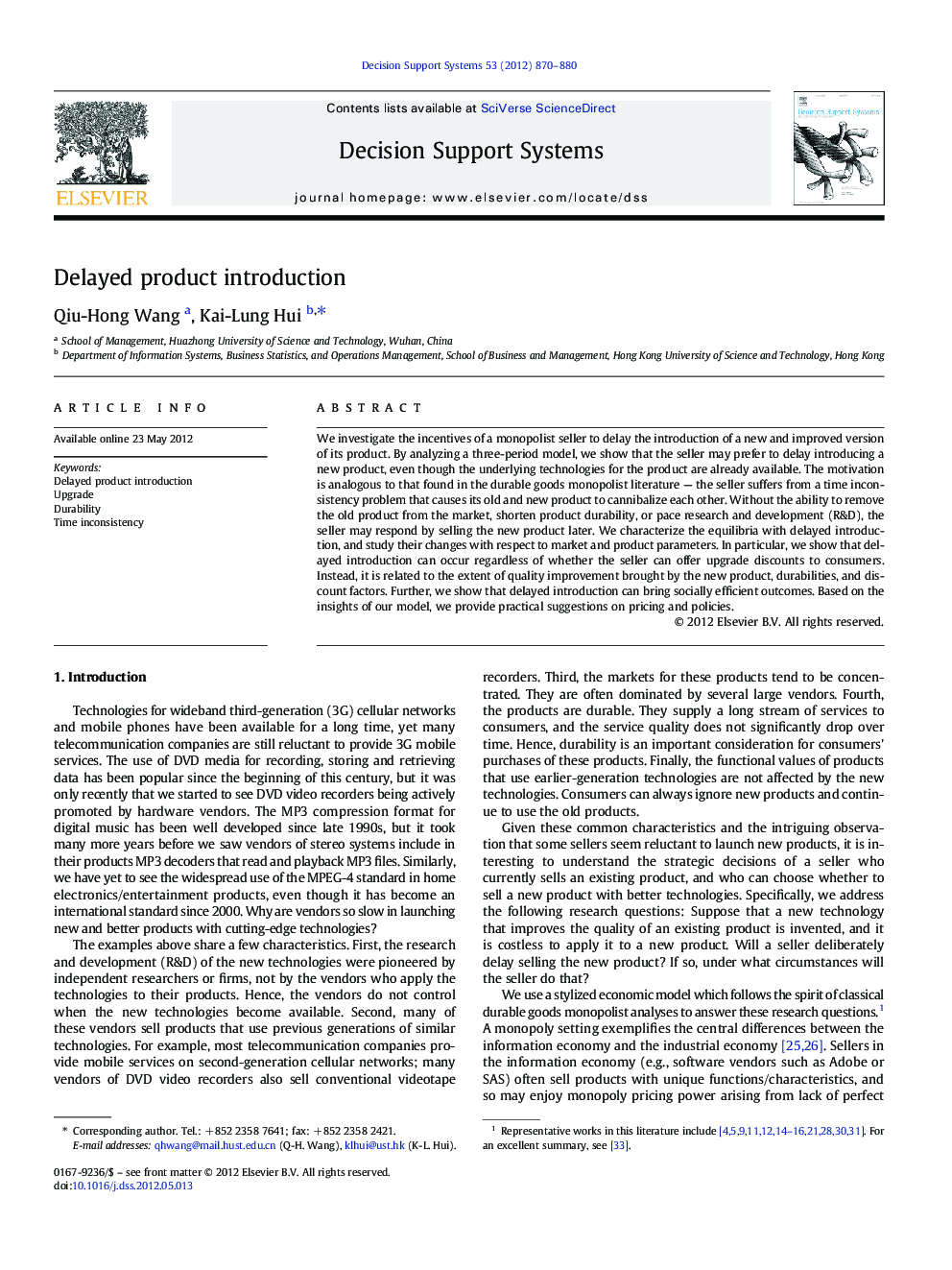| Article ID | Journal | Published Year | Pages | File Type |
|---|---|---|---|---|
| 552298 | Decision Support Systems | 2012 | 11 Pages |
We investigate the incentives of a monopolist seller to delay the introduction of a new and improved version of its product. By analyzing a three-period model, we show that the seller may prefer to delay introducing a new product, even though the underlying technologies for the product are already available. The motivation is analogous to that found in the durable goods monopolist literature — the seller suffers from a time inconsistency problem that causes its old and new product to cannibalize each other. Without the ability to remove the old product from the market, shorten product durability, or pace research and development (R&D), the seller may respond by selling the new product later. We characterize the equilibria with delayed introduction, and study their changes with respect to market and product parameters. In particular, we show that delayed introduction can occur regardless of whether the seller can offer upgrade discounts to consumers. Instead, it is related to the extent of quality improvement brought by the new product, durabilities, and discount factors. Further, we show that delayed introduction can bring socially efficient outcomes. Based on the insights of our model, we provide practical suggestions on pricing and policies.
► A monopolist seller may deliberately delay selling new and better products. ► Delayed new product introduction could occur even with upgrades/trade-ins. ► Quality improvement, durability, and discount factor affect new product timing. ► Extended product durability may help consumers get new products earlier. ► Delayed product introduction per se is a good strategy to resolve cannibalizations.
